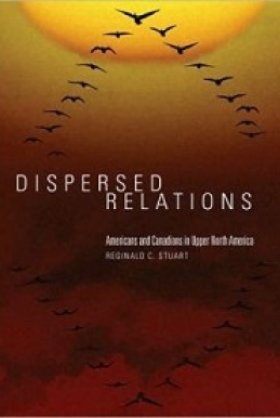
-
Although they sometimes seem to be engaged in a single, wildly imbalanced relationship, the United States and Canada actually share interwoven connections through a host of regional, cultural, social, economic, and even political communities that form an American-Canadian interdependence, according to Reginald C. Stuart. Dispersed Relations uses multidisciplinary research and an innovative framework to show how a shared history of ideas and tastes, values and interests, ethnic groups, institutions, and organizations in North America has sorted into four realms: cultural, social, economic, and political. Political and economic asymmetry notwithstanding, Canadians and Americans live and work within a transnational culture, society, and economy, says Stuart. Yet even as technology, communications, and interests have expanded their interaction, citizens from each country continue to identify with their individual heritage and political systems. Recent events may have strained, and perhaps even blunted this historical evolution, Stuart notes. Since 9/11, Washington has focused on security, and Ottawa reluctantly has met that concern in order to sustain the open transit of people and goods upon which Canada relies. As the Western Hemisphere Travel Initiative has shown, however, border management also has become increasingly costly and complex. This timely and provocative book provides context for current events and trends that, in isolation, daunt and baffle observers, citizens, and policymakers alike.
Reginald C. Stuart is a professor of history and political and Canadian studies at Mount Saint Vincent University in Halifax, Nova Scotia. He has taught and published widely and comments regularly in the media on U.S. and Canadian American history and affairs. His last major book won the 1990 Albert Corey Prize and in 2004 he was a Canada–U.S. Fulbright Fellow with the Canada Institute of the Woodrow Wilson International Center for Scholars.
Author
Browse Insights & AnalysisExplore More
Browse Insights & Analysis
We Have a Deal: US-Mexico Trade Negotiations Reach a Breakthrough
Posted date/time:
¿Qué son las empresas multilatinas? Con la profesora Lourdes Casanova en Tres Respuestas
Duration:29:12Posted date/time:
What is Happening with US Tariffs? II
Posted date/time:
